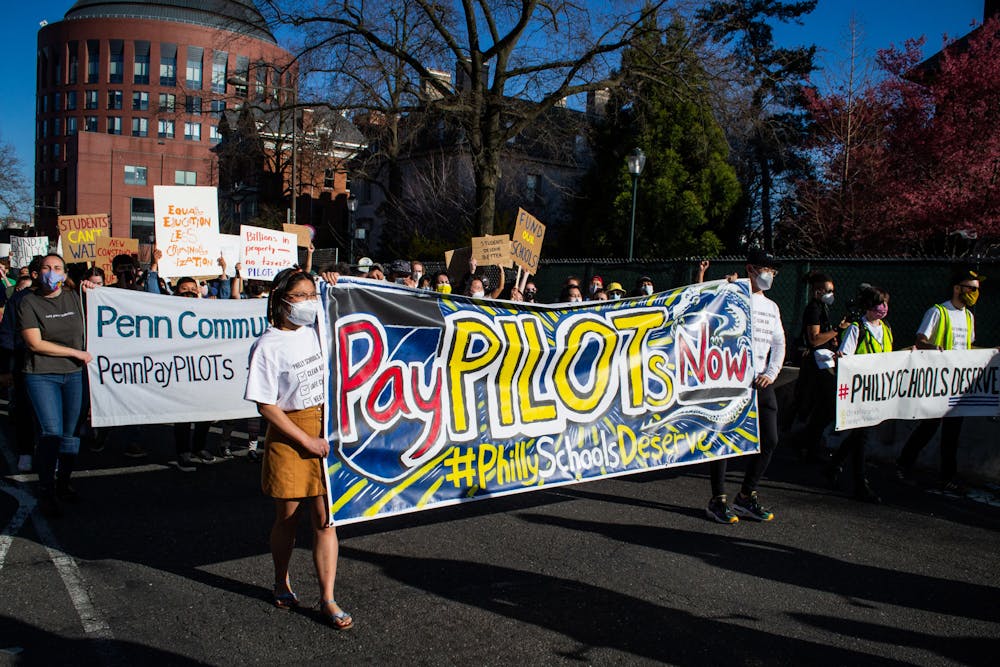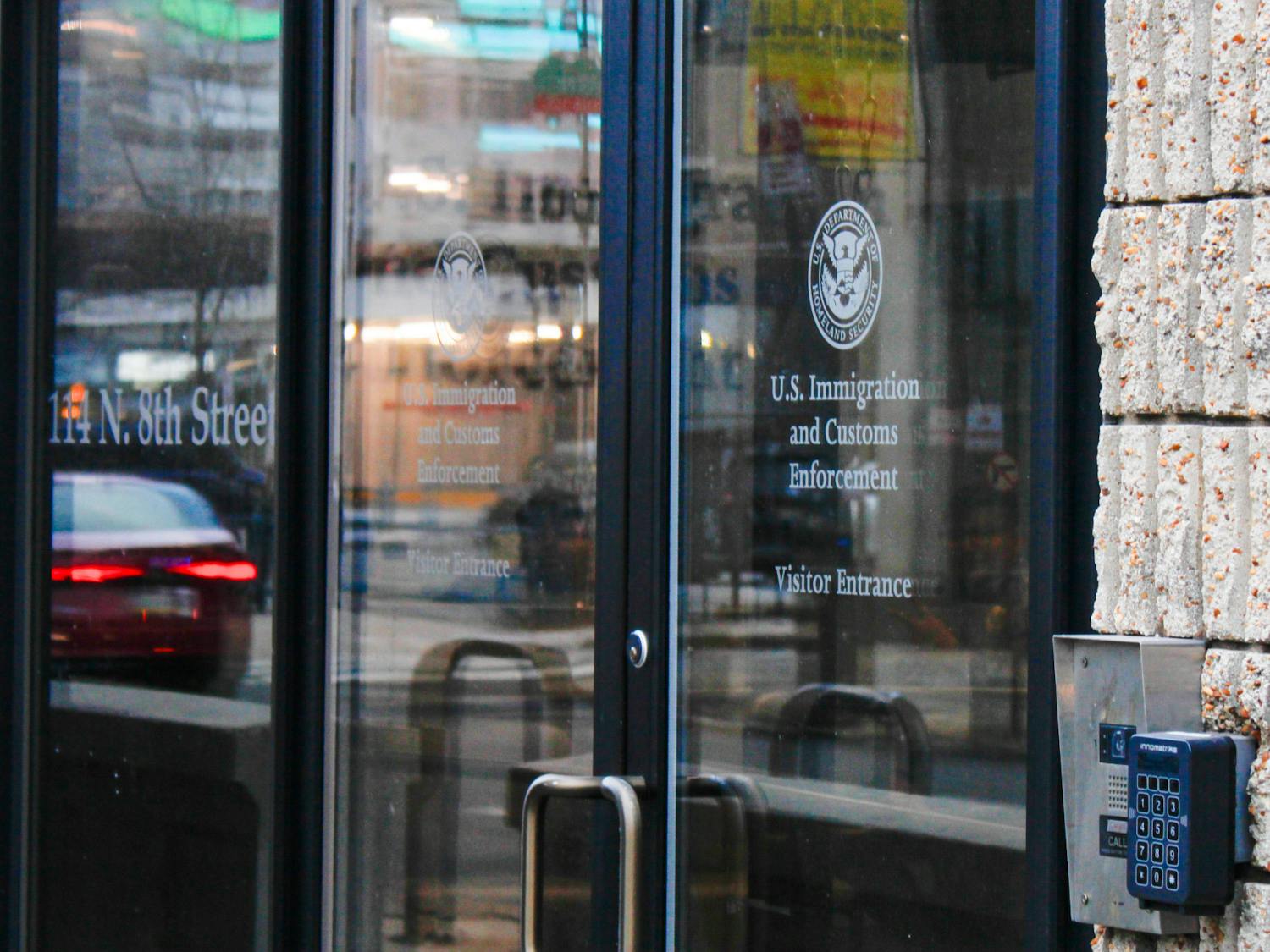Many students, myself included, enter Penn with aspirations of becoming civically engaged in their newly adopted community. A community like West Philadelphia in particular, which boasts the title of being the United States' 'poorest big city' and is afflicted by increasing rates of opioid abuse, income inequality, and crime; all of which burden and disenfranchise Black Philadelphians at disproportionate levels in a city that operates with a pronounced racial divide.
As a student who pursued community-based extracurriculars off the bat in organizations like Service Link and the West Philadelphia Tutoring Project, I quickly learned that the issues afflicting West Philadelphia that I — a girl from a relatively affluent Michigan suburb — had only read about were very real and were not going to be resolved by a couple of volunteer sessions, no matter how eager or informed the volunteers were. Those issues were ingrained in the very fabric of the system and required much greater means to be adequately addressed.
Service Link is a student organization dedicated to connecting West Philadelphians with free benefits like Medicaid, Medicare, and SNAP. They enable student volunteers to function as the liaison between a government program with the faulty website or the subsidized housing program with the staggering waitlist, and the individual in need on the other end.
One volunteer experience struck me in particular. During a shift at the Philadelphia Episcopal Cathedral, which hosts meals supplemented by a number of free student-run clinics every Wednesday, a man approached and greeted me. I returned the greeting and asked him, “What can I help you with?” to which he responded solemnly, “Everything. Housing, food, employment. I need all the help I can get.”
I spent the next 30 minutes searching diligently through our database and scouring the Internet for any resources I could find. After navigating broken websites and endless waitlists, I felt entirely unhelpful and disillusioned by the difficulty of securing something as necessary as housing. My frustration, I realized, was this man’s unfortunate reality — a reality instated by a system imbued with the odds stacked against him. While my assistance that day may have been helpful, I merely scratched the surface of his day-to-day obstacles, fears, and concerns.
Small-scale actions alone, however meaningful, cannot begin to rectify the deeply-rooted issues that impact so many Philadelphians. Boston University’s Community Service Center notes that when service is driven by saviorism, it's no longer aimed at achieving justice or autonomy for a community, but rather becomes a series of band-aid solutions aimed at gratifying the volunteer. For me, deconstructing the savior complex means acknowledging my own limitations, as well as the limitations of the work that I engage in. It means advocating for meaningful policy changes — like pressuring Penn to pay PILOTs and preserve affordable housing in University City — and not limiting my support for the community to a single extracurricular.
While it is important to seek meaningful involvement in the community, we must first ground ourselves in humility — in acknowledging what we don’t know and being flexible with what we do. We must also ground ourselves in reality: we are not going to single-handedly fix everything, but we can do our best to make some things better. We cannot approach civic engagement solely with our own expertise and conditionality. We must sincerely seek to understand the experiences of those we work with and to engage accordingly.
When engaging with communities, community residents should be provided with opportunities to identify, co-create, and have ownership stake in solutions. Empowering communities to create change, rather than imposing what you think is best, is arguably the most effective way to drive long-term, sustainable change.
Penn’s ultimate failure to pay PILOTs (payment in lieu of taxes) and use of SILOTs (services in lieu of taxes) as a meager substitute is a prime example of imposing what one thinks is best. PILOTs make up about 40% of the property taxes that Penn is exempt from. This funding that Penn refuses to pay — and is entirely feasible for them to put forward — would provide Philadelphia public schools the opportunity to address teacher shortages, ensure that every school has a library with a librarian, and provide the full range of educational programming that all students deserve.
Although Penn can claim to support the city through University-funded schools like Henry C. Lea and other programming offered through organizations such as the Netter Center for Community Partnerships and Civic House, no number of philanthropic endeavors — or band-aid solutions — will rectify the issues that West Philadelphians experience on a daily basis that trickle down throughout generations. Penn cannot expect to simply offer X, Y, and Z and feel morally satiated.
Deconstructing the savior complex means acknowledging that your good intentions may sometimes have negative or less than desirable outcomes. It means acknowledging that your efforts may not always be fruitful or feel rewarding. It means being able to recognize when something isn’t effective and considering other solutions. It means, in spite of all this, continuing to do the work.
Rather than selectively supporting community improvement efforts, Penn must make efforts to empower community members to initiate the improvements that they desire, by providing them with the resources — the funding — necessary to do so. Although Penn as an institution may have good intentions, it must acknowledge the complacency of its actions and work toward better centering the community in its efforts.
When engaging with the West Philadelphia community and beyond, we must prioritize building trust and rapport with the community, honoring our commitments to them, and informing our efforts by their needs. We must consider first and foremost the desires of the people who are most affected by these decisions. We must not only feature their perspectives in our decision making processes but highlight their voices as the focal point of our work.
AZZA ELRASHID is a rising College sophomore studying health and societies from Lansing, Mich. Her email is azzael1@sas.upenn.edu.









